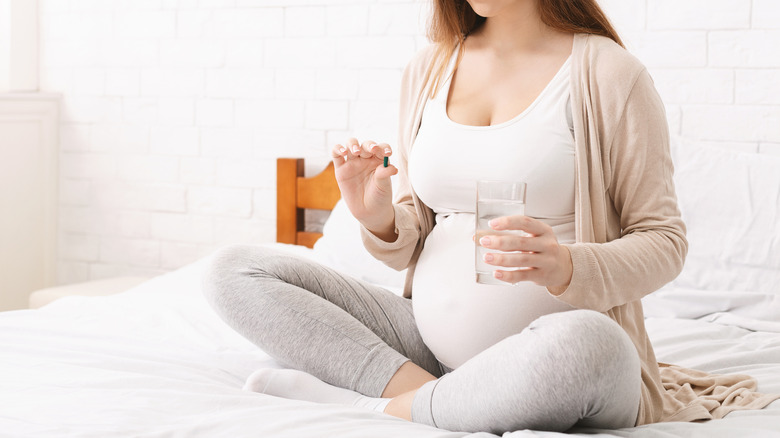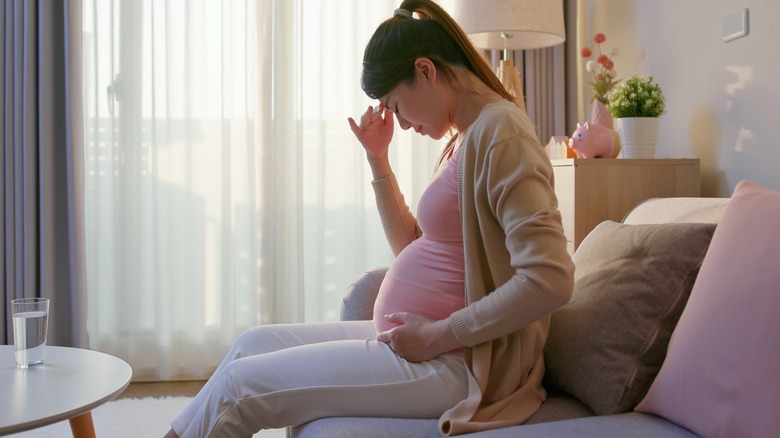Is It Safe To Take Estrogen During Pregnancy?
Estrogen, the primary female sex hormone, plays a key role in overall health. It not only regulates menstruation but also influences cardiovascular function, bone growth, and blood flow (per Cleveland Clinic). What's more, it supports reproductive function and gives women their female characteristics. Its levels increase during ovulation and begin to drop before menopause.
During pregnancy, estrogen, also known as oestrogen, supports fetal development and prepares the female body for breastfeeding, according to the National Childbirth Trust. At the same time, it stimulates the production of oxytocin, a hormone that eases pain and stress during labor, as per a 2021 review published in Frontiers in Endocrinology.
Estradiol and other forms of estrogen are used for hormone replacement therapy. Estriol, for instance, may help with hot flashes, vaginal dryness, bone loss, urinary incontinence, or other health problems, says the Cleveland Clinic. These hormones can be prescribed to pregnant women or those trying to conceive. For example, a 2013 study published in Fertility and Sterility found that estrogen and progesterone supplementation may help prevent pregnancy loss and reduce stillbirths.
But despite these findings, estrogen supplements carry potential risks for moms-to-be and should be used with caution. Even if you are not pregnant, these drugs can cause heart palpitations, joint pain, difficulty breathing, vaginal bleeding, and other side effects, according to the Mayo Clinic.
Estrogen therapy can put you and your baby at risk
Like most medications, estrogen products are not entirely safe. For example, a 1999 study published in the British Journal of Cancer found that children born from mothers who took estrogen during pregnancy were more likely to have malformations. Additionally, the Mayo Clinic warns that estradiol gels, rings, and inserts could harm the fetus.
In animal studies, mice exposed to small doses of estrogen had offspring with deformities, notes a 2005 article featured in the journal Nature. Its authors also say that diethylstilbestrol, an estrogenic drug prescribed in the '50s to women at risk of miscarriage, caused their children to develop genital abnormalities later in life. These medications have also been linked to behavioral changes and early puberty.
In addition, estradiol products can increase the risk of uterine cancer, explains OB/GYN Kaci Durbin, a regular contributor to Drugs.com. She does advise against the use of estradiol during pregnancy. Moreover, women taking estradiol may experience allergic reactions and life-threatening side effects, such as strokes, heart attacks, or blood clots. The drug may additionally cause breast pain or lumps, backaches, insomnia, vaginal bleeding, jaundice, or digestive problems.
Pregnant or not, it's important to keep your estrogen levels in balance. Synthetic estrogen may benefit menopausal women and those with certain conditions, but its risks shouldn't be ignored. Even oral contraceptives, which contain trace amounts of estrogen, can harm your unborn child if you become pregnant while on the pill (via the 2005 article).


